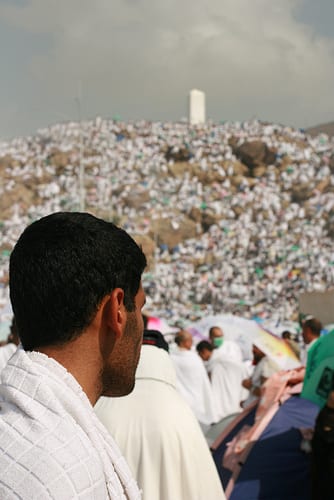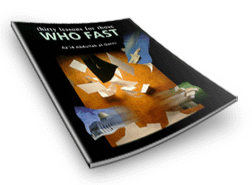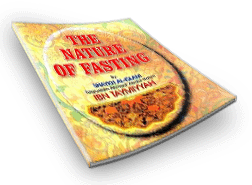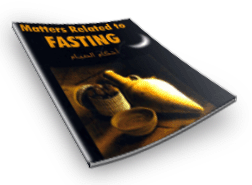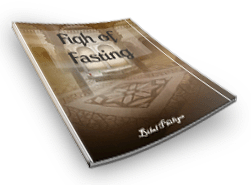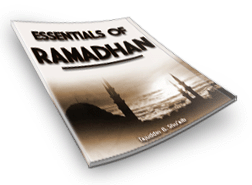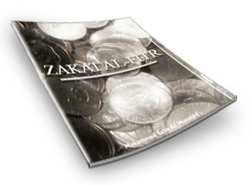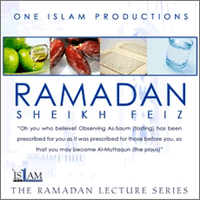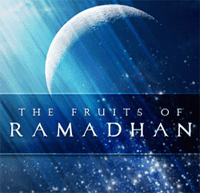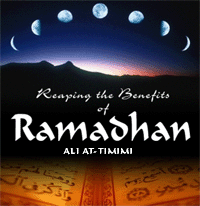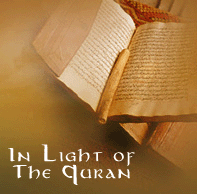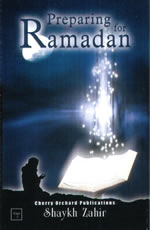Bismillahir Rahmanir Rahim
In the name of Allah, the Most Beneficent, the Most Merciful
Click to read more: http://productivemuslim.com/four-things-to-do-on-the-blessed-10-days-of-dhul-hijjah/#ixzz2hDxrYpNs
Follow us: @AbuProductive on Twitter | ProductiveMuslim on Facebook
Four Things to Do on the Blessed 10 Days of Dhul Hijjah
Allah the Most High & Exalted says: “By the Dawn; By the ten nights” [Surah Al-Fajr:1-2]
This oath substantiates the greatness and sacredness of these ten nights in the eyes of Allah. This is an extraordinary oath; it is very reliable and significant and the wise men can understand that by this oath, Allah too attaches great importance and value to the ten nights of Dhul Hijjah.
The Prophet (peace and blessings of Allāh be upon him) has said regarding these blessed days:
“There are no days in which righteous deeds are more beloved to Allah than these ten days.” The people asked , “Not even Jihad for the sake of Allah?” He said, “Not even Jihad for the sake of Allah, except in the case of a man who went out, giving himself and his wealth up for the cause (of Allah), and came back with nothing.” [Sahih Al-Bukhari]
It is clear then that these 10 days possess tremendous blessings and excellence. Therefore we should spend these 10 blessed days and nights in intensive worship and virtuous acts. Therefore we cannot possibly afford to miss out on such immense rewards otherwise we will definitely be in utter regret in the Hereafter!
The following are recommended acts to do during the blessed 10 days and nights of Dhul Hijjah.
1. Fasting the 9 days of Dhul Hijjah
It is recommended to fast on the first nine days of Dhul Hijjah, especially on the 9th which is the blessed day of Arafah. Allah’s Messenger (peace and blessings of Allāh be upon him) encouraged us to do righteous deeds in the first ten days of Dhul Hijjah; and indeed fasting is one of the best of deeds. Almighty Allah says, “All the deeds of the son of Adam are for him, except fasting, which is for Me and I shall reward for it.”’ [Sahih Al-Bukhari]
Note: The 10th of Dhul Hijjah is the day of Eid ul Adha and it is prohibited to fast on this day.
Forgiveness for 2 years of sins (minor sins) for fasting on the day of Arafah: Abu Qatadah Al-Ansari (may Allāh be pleased with him) narrated, ”The Messenger of Allah (peace and blessings of Allāh be upon him) was asked about fasting on the day of Arafah (the 9th of the month of Dhul Hijjah). He replied, “Fasting on the day of Arafah is an expiation for the preceding year and the following year.” He was also asked about fasting on the day of Ashura (the 10th of the month of Muharram). He replied, “Fasting on the day of Ashura is an expiation for the preceding year.” The Messenger of Allah () was also asked about fasting on Monday, and he replied, “This is the day on which I was born and the day on which I was sent (with the Message of Islam) and the day on which I received revelation.” [Muslim]
Therefore we should try our utmost to fast all the blessed 9 days of Dhul Hijjah – particularly the 9th of Dhul Hijjah which is the day of Arafah. If not then we should at least fast as many as we can possibly can as we may not get this opportunity again next year as life is uncertain and we should never procrastinate on doing good actions.
Tip: Eat light and hydrate well. If you will be staying up until Fajr, then the more you eat, the harder it will be for you to stay up and the less productive you will be! Keep some water with you at all times during the night. This will help you stay up, feel energised and refreshed and have a clearer mind. Also encourage your family and friends to join in!
2. Reciting tasbeeh, tahmeed, tahleel and takbeer abundantly
It is Sunnah to recite takbeer (Allahu Akbar), tahmeed (Alhamdulillah), tahleel (Laa ilaaha ill-Allah), and tasbeeh (SubhanAllah) during the first ten days of Dhul Hijjah. These words should be recited abundantly in the masajid, homes, streets and in every place where it is permissible to remember and glorify Allah.
“That they may witness things that are of benefit to them (reward of Hajj in the Hereafter and also some worldly gain from trade), and mention the Name of Allah on appointed days, over the beast of cattle that He has provided for them (for sacrifice).” [Surah Al-Haj:28]
Reciting the Takbeeraat-e-Tashreeq from the 9th to the 13th of Dhul Hijjah:
Allahu Akbar, Allahu Akbar, Laa ilaaha illallahu Wallahu Akbar, Allahu Akbar, Wa lillahil Hamd.
Translation: “Allah is the greatest, Allah is the greatest. There is no deity besides Allah and Allah is the greatest. Allah is the greatest and all praises are for Allah only.”
Men can recite the above after every fardh salaat from Fajr of the 9th of Dhul Hijjah until Asr of the 13th of Dhul Hijjah audibly. Women should recite it silently.
Tip: Remember and glorify Allah no matter what you are doing: This is particularly easy as one can remember Allah anywhere and at any time whether it is during work or any daily activity.
3. Offering the Qurbani (sacrifice of a livestock animal)
The qurbani (also known as udh’hiya) is the sacrifice of a livestock animal during Eid ul-Adha. It is the sunnah of Prophet Ibrahim (peace be upon him). It is a means of getting closer to Allah (glorified and exalted be He). It is obligatory upon every sane adult who is not a traveller and can afford it (wealth equal to or more than nisab). It is performed on the days of sacrifice which is the 10th, 11th or 12th of Dhul Hijjah. One may sacrifice a thousand animals on days other than these, but it will never be regarded or considered as udh’hiya. Therefore the qurbani is a sacred act which can only be done during the three days of Dhul Hijjah as specified. Regarding the qurbani, Allah says in the Qur’an:
“It is not their meat, nor their blood, that reaches Allah, It is their piety that reaches Allah.” [Surah Al-Haj:37]
Tip: It is best to go about the sacrifice the traditional way and offering it in your locality so that you obtain the lesson from the sacrifice and remind yourself of the emotions and test that Prophet Ibrahim (peace be upon him) himself endured. However, where you face logistical issues, nowadays it is much easier for us to fulfil this sacred act by the mere click of a button over the Internet where we can buy an animal to be sacrificed on the various established Muslim charity websites.
4. Doing more good deeds than usual
The Prophet (peace and blessings of Allāh be upon him) said: “There are no days in which righteous deeds are more beloved to Allah than these ten days (Dhul Hijjah).” [Sunan Ibn Majah]
Therefore we should increase the amount of good deeds we do in order to take advantage of this blessed time where good deeds are increased significantly.
Tip: Complete as many worldly tasks as possible beforehand and do not waste this precious time: Make arrangements to clear as many of your pending tasks as possible or make a plan for tackling them later. This way, one is free to worship during the 10 days and nights without being distracted by worldly tasks. We must make a firm intention that during these blessed 10 days that we will not take part in idle talk, watch TV, play computer games or spend time on the social media. There are many more days in the year for all that – if you really cannot resist. This is just 10 days! Consider the utter loss and regret for those who waste these blessed 10 days.
The following 7 deeds are amongst the best actions we can do during these blessed 10 days:
- Reciting the Qur’an abundantly: ”Whoever reads a letter from the Book of Allah, he will have a reward. And that reward will be multiplied by ten. I am not saying that “Alif, Laam, Meem” is a letter, rather I am saying that “Alif” is a letter, “laam” is a letter and “meem” is a letter.” [At-Tirmidhi]So if one letter of the Qur’an is equivalent to ten good deeds then imagine how much reward there is for reading each letter during these blessed 10 days which are said to be the best days of the year! Subhanallah!Abu Darda’ reported Allah’s Apostle (peace and blessings of Allāh be upon him) as saying: Is any one of you incapable of reciting a third of the Qur’an in a night? They (the Companions) asked: How could one recite a third of the Qur’an (in a night)? Upon this he (the Prophet(peace and blessings of Allāh be upon him)) said:” He is Allah, One” is equivalent to a third of the Qur’an. [Sahih Muslim]Therefore let us recite as much of the Qur’an as we can during these 10 days and nights and aim to recite it from cover to cover if we can. After that we should continue reciting the Qur’an throughout the rest of the year, for it is one of the excellent forms of worship!Tip: Increase your recitation by adding a few minutes or pages to your usual recitation routine. If you don’t have a routine yet, maybe this is the time for you start forming the habit. Begin by committing to recite at least one or two pages (or for 10 minutes, if you are a slow reciter) and then work to increase on this. Carry a small pocket mus’haf with you or install a reliable Qur’an app on a mobile device so that Shaytan cannot discourage you when you are out and about!Note: It is also very relevant to read the story of Prophet Ibrahim (peace be upon him) which will give one a deeper understanding of the rituals of Hajj and the qurbani.
- Showing exemplary character: The Prophet Muhammad (peace and blessings of Allāh be upon him) said, “Nothing will be heavier on the Day of Resurrection in the Scale of the believer than good manners. Allah hates one who utters foul or coarse language.” [At- Tirmidhi].So we must aim to be the best in character during these blessed days and nights and continue to do so for the rest of the year. We must not argue, swear, backbite, slander or gossip.Tip: Make an extra effort to be good to your friends, family, and neighbours, and especially those of other faiths.
- Giving much in charity: As the rewards of doing good deeds during these days are increased significantly then we should also give as much as we can in charity.Allah promised forgiveness of our sins if we give in charity and give to the poor and needy. He honoured our charity and described it as a “ beautiful loan to Allah “ to emphasise that we are doing something good that He loves, and that He himself will pay our loan back to us doubled:“If ye loan to Allah a beautiful loan, He will double it to your (credit), and He will grant you Forgiveness: for Allah is Most Ready to appreciate (service), Most Forbearing.” [Surah At-Taghabun:17]Tip: Have some change with you at all times to hand out when the opportunity arises. If you don’t have the opportunity to give out money in public, go online and resolve to donate a fixed amount every morning! If you don’t have money, remember that even a smile is considered charity – so go on and spread some good cheer!
- Respecting and honouring our parents: Islam teaches us that of the most beloved deeds to Allah, having respect for one’s parents is second only to that of prayer and is greater than that of fighting in His cause.It is narrated on the authority of Abdullah bin Mas’ood (may Allāh be pleased with him), who observed: “I asked Allah’s Messenger (peace and blessings of Allāh be upon him) which deed was the best.” He (the Prophet (peace and blessings of Allāh be upon him)) replied: ‘The Prayer at its appointed hour.’ I (again) asked: “Then what?” He (the Holy Prophet) replied: ‘Kindness to the parents.’ I (again) asked: “Then what?” He replied: ‘Earnest struggle (Jihad) in the cause of Allah.’ I refrained from asking any more questions for fear of annoying him. [Sahih Muslim]Tip: Make an extra effort to spend time with them during these blessed days. Recite Qur’an with them, read a book together, discuss a lecture you heard, share your plans for the future and seek their input. Drive your father to the masjid if he is unable to walk there and earn reward for doing so, or call them a few more times in the day if they live far away.
- Doing many nawafil (superogatory) prayers: Rabi’ah ibn Malik al-Aslami reported that the Prophet (peace and blessings of Allāh be upon him) said:”Ask (anything).” Rabi’ah said: “I ask of you to be your companion in paradise.” The Prophet (peace and blessings of Allāh be upon him) said: “Or anything else?” Rabi’ah said: “That is it.” The Prophet(peace and blessings of Allāh be upon him) said to him: “Then help me by making many prostrations (i.e., supererogatory prayers).” [Abu Dawud]The following are sunnah and nawafil prayers to pray during the 10 days of Dhul Hijjah:
- Pray 12 raka’ahs of sunnah daily along with the fardh prayers. Umm Habibah Ramilah bint Abu Sufyan (may Allāh be pleased with him) narrated she heard the Prophet (peace and blessings of Allāh be upon him) saying: “A house will be built in Paradise for every Muslim who offers twelve units of prayers other than the obligatory ones in day and night, to seek pleasure of Allah.” [Muslim]Umm Habibah (RA) narrated that the Prophet (Sallallahu Alaihi Wasallam) said: “Whoever sticks to the habit of offering four rak`ahs before Noon Prayer & four rak`ahs after it, Allah will shield him against the Hell-Fire.” [Sunan An-Nasai]- Salaatul Duhaa: The Prophet (peace and blessings of Allāh be upon him) is reported to have said: Whoever prayed twelve rakaats (before midday), then Allah will, as a reward, prepare a palace of gold for him in Paradise. [Sunan An-Nasai]- Two raka’ahs sunnah after entering the masjid: Abu Qatadah (may Allāh be pleased with him) narrated the Prophet (peace and blessings of Allāh be upon him) as saying: “If any one of you enters a mosque, he should pray two rak`ahs before sitting.” [Abi Dawud]- Tahiyyatul wudhu: - 2 raka’ahs sunnah after performing wudhu (ablution). Abu Hurayrah (may Allāh be pleased with him) reported the Prophet (may Allāh be pleased with him) saying to Bilal (may Allāh be pleased with him): “Tell me about the best of your deeds (i.e. one which you deem the most rewarding) since your embracing Islam because I heard your footsteps in front of me in Paradise.” Bilal (may Allāh be pleased with him) replied: “I do not consider any act of mine more rewarding than that whenever I make ablution at any time of night or day, I perform Prayer for as much as was destined for me to do.” [Al-Bukhari and Muslim]- Tahajjud prayer: The most virtuous nawafil (voluntary) prayer is the Tahajjud prayer as it enables one to get closer to Allah (glorified and exalted be He). The best recitation of the Qur’an is done during Tahajjud prayer. You should recite as much of the Qur’an as you have memorised. In the long prostrations, beg Allah (glorified and exalted be He)for forgiveness and mercy and surely He will never turn away his slaves who beg of him during this prayer.Note: During the first 10 days of Dhul Hijjah we should aim to pray Tahajjud every night. If not then we should pray it in as many nights as we possibly can. When fasting during the first 9 days of Dhul Hijjah one should awaken a little earlier for Suhur, make wudhu and pray Tahajjud. The last third portion of the night is the most blessed part of the night in which duas are more readily accepted during this time. So by praying Tahajjud it gives us the best opportunity to get closer to Allah and to make sincere dua, repenting for our sins past and present and to beg, cry and ask of Allah for whatever we want.Tip: Before you go to bed each night, use the Productive Muslim Taskinator to block out time for these additional acts of worship. You are more likely to get something done if you allocate time for it. As the saying goes – what gets scheduled, gets done! - Increase in glorification & remembrance of Allah: As His creations we should all remember and glorify our creator as much as we possibly can, but even more so during these blessed days. The following are some easy and very beneficial dhikr and glorification we can do throughout these blessed days and nights.- Allahu Akbar, Allahu Akbar, Laa ilaaha illallahu Wallahu Akbar, Allahu Akbar, Wa lillahil Hamd
- Subhanallah
- Alhamdulillah
- Allahu Akbar
- Laa ilaha ilallah
- La hawla wa la quwwata illa billah
- Asthaghfirullah
- SubhanAllahil azeem wa bihamdihi
- Subhāna-llāhi, wa-l-hamdu li-llāhi, wa lā ilāha illā-llāhu, wa-llāhu akbar. Wa lā hawla wa lā quwwata illā bi-llāhi-l-aliyyi-l-azīm
- Lā ilāha illā-llāhu waḥdahu lā sharīka lahu lahu-l-mulku wa lahu-l-ḥamdu yuhyi wa yumītu wa huwa ḥayyu-llā yamūtu abadan abada, ḏū-l-jalāli wa-l-ikrām, biyadihi-l-khayr, wa huwa alā kulli Shay-in qadīr or the shortened version Laa ilaaha illal-laahu wahdahu laa shareeka lahu, lahul-mulku wa lahul-hamdu wa huwa ‘alaa kulli shay-in qadeerOne can also recite the durood that one recites towards the end of one’s salaah or the shortest durood: Sallallahu Alayhi Wasallim.Tip: Have something in your environment or on your person as a reminder for dhikr. It could be a special ring that you wear or a sticker placed on your desk or car wind shield. - Making much dua: Almighty Allah says in the Qur’an, ”When my servants ask you concerning me, (tell them) I am indeed close (to them). I listen to the prayer of every suppliant when he calls on me.” [Suratul Baqarah:186]We should busy ourselves in Dua during these 10 blessed days and nights particularly on the night and day of Arafat which is the 9th of Dhul Hijjah. Duas are also readily accepted during fasting, especially just before Suhur ends and just before breaking the fast.
- Making life changes: We should make the necessary changes to improve ourselves as Muslims and what better time to make such changes than during these blessed 10 days where we can change our lives forever? We must internalise these changes and make a firm commitment to Allah (glorified and exalted be He), and maybe that he will wipe off our sins until we become newborn babies, In sha Allah.Therefore let us make the best of these blessed days and make the necessary changes so that we may live a life devoted to Allah. We should aim to rectify our condition and live for the Hereafter rather than living for this world which can end at any second for any one of us. Allah tells us In the Qur’an to enter fully into our deen (way of life) and not partly:
“O believers enter into Islam completely and do not follow the footsteps of Shaitan, surely he is your clear-cut enemy….” [Surah Al-Baqarah:208-210]
So then will we not make Islam a FULL part of our lives? This is our best opportunity and if we don’t grab it now and death comes to us then surely we will regret it for ETERNITY! Surely there is no logic in putting all of our efforts into a short, temporary life which can end at any second and neglect that which will last forever. Knowing this then why do we put everything into this life and neglect the Hereafter? Time is passing us by and we are blinded by the deception of this life. Time is not on our side. This life is very short indeed. It is like a quick passing phase. It is a short stopover in our journey to the eternal Afterlife.
This short life is our only one opportunity to build our Hereafter. In the Hereafter we will want to be taken back to this life in order to live it again so that we can worship Allah. But we will not be able to. So let us prepare for the Hereafter and our inevitable death before preparations are made for our funerals.
May Allah enable us to make the best of these blessed days and nights and make it a means of our success in this world and in the Hereafter. Ameen.
About the Author:
Farrukh Paasha is a HR consultant for a local charity that cares for the terminally ill. He writes Islamic articles, has a blog and moderates a Muslim online forum. He likes to write articles to motivate others to do good deeds of all kinds.
Click to read more: http://productivemuslim.com/four-things-to-do-on-the-blessed-10-days-of-dhul-hijjah/#ixzz2hDxrYpNs
Follow us: @AbuProductive on Twitter | ProductiveMuslim on Facebook
Has not the time yet come for those who believe that
their hearts should be humble for the remembrance of Allah
and what has come down of the truth?
[Surah Al Hadid 57:16]
